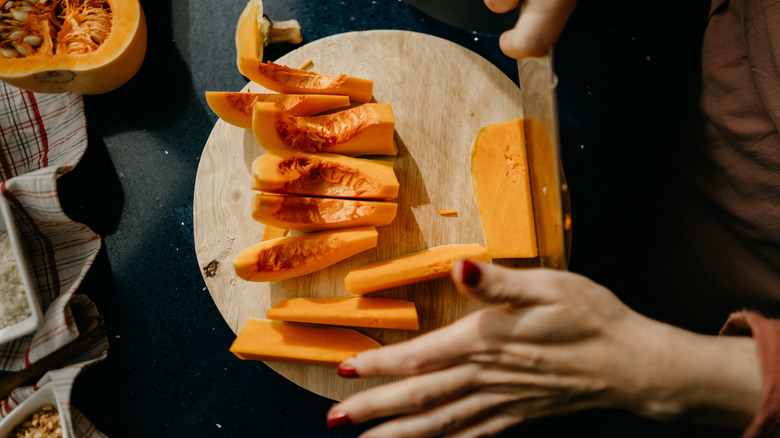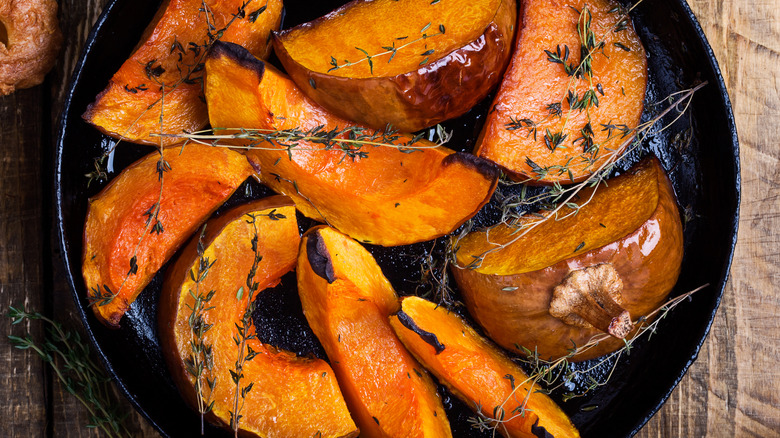Why You Should Think Twice Before Buying Frozen Butternut Squash
Encountering it on the frozen aisle, frozen butternut squash probably seemed like the perfect thing to throw in your cart for the week ahead. Convenient, affordable, nutritious, it's a no brainer. But perhaps surprisingly, many chefs don't recommend it at all. Kyle Taylor, chef and founder at He Cooks, tells Food Republic that frozen butternut squash doesn't hold up the same as fresh butternut squash does, especially when it's roasted. "It isn't ideal because its high water content leads to ice crystal formation, and thus it doesn't caramelize well when roasted after freezing," he explains.
As you're sure to know, roasting butternut squash is one of the most delicious ways to bring out its natural flavors and sweetness. Sadly, the freezing process, with all its crystallization, just messes with that roasting process. So next time you're planning an impressive dinner party dish like roasted butternut squash with whipped feta and zhoug, Taylor suggests sticking to good old fashioned cutting and cubing yourself. It's worth the effort, as fresh squash is the only thing that guarantees the sweet honeyed effect you're going for when a dish calls for roasted butternut.
Are there better alternatives?
So we're not buying butternut squash frozen anymore, but does that mean hours spent wrestling with a squash and a knife every time a recipe calls for it? Not necessarily. According to Taylor, there are still plenty of ways to enjoy squash without compromising on your quest for convenience. He suggests a better option is to buy fresh butternut squash and spend time cutting it up to keep in the refrigerator, which will mean less work when the time comes to actually cook it. Future thinking, right there.
But for those who love their frozen meal prep, Taylor suggests that you roast the squash first, and then freeze it. This will still affect the texture of the defrosted squash, but it will have already taken on its coveted caramelized texture before being frozen, which will help. Another option Taylor recommends is to sub fresh squash for canned puréed butternut squash — which obviously can't be used for roasting, but is a great choice for recipes butternut squash soup or to be used in sauces like ravioli with butternut cream sauce.
Frozen vegetables offer us so much convenience and shave off lots of time in the kitchen, but it's all about picking the right ones to make sure you're not sacrificing on flavor as a result. Choose lower water content vegetables, like corn and peas, for the freezer, and consider sticking to whole foods for high water content vegetables like squash.


